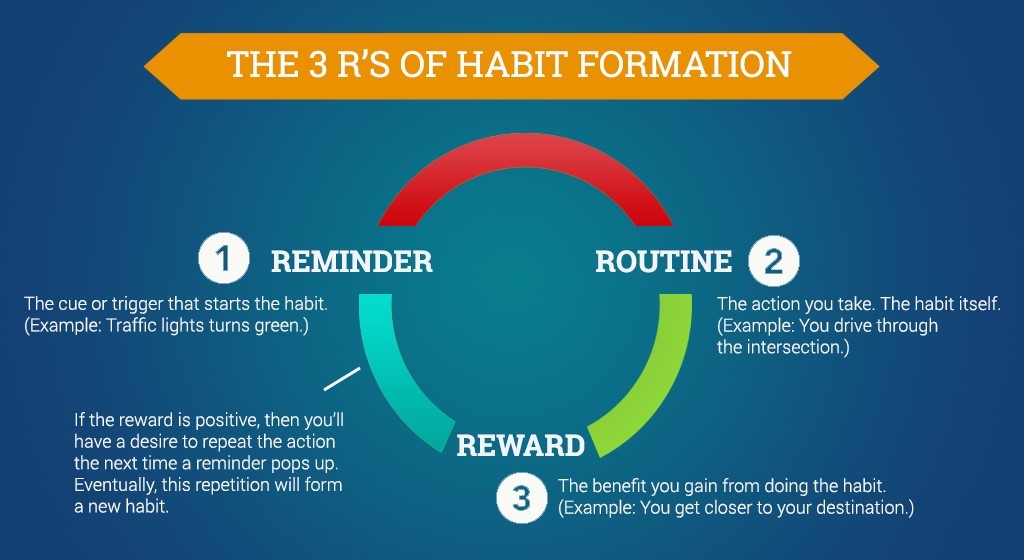The Science of Habit Formation in Health and Wellness: How Small Changes Lead to Big Results
Hey, I’m Preet! Have you ever found yourself committing to a new workout routine or healthy eating plan, only to fall off track after a few weeks? I’ve been there. But over the years, I’ve come to understand that it’s not about sheer willpower—it’s about building the right habits that make health and wellness part of your daily life.
In this blog, I’ll dive into the fascinating science of habit formation and how you can apply it to your own health journey. I’ll also share some practical tips to make lasting changes that will stick. Let’s get started!
- How Habits Are Formed: The CRR Model
Habits don’t develop overnight. They follow a process known as the habit loop, which consists of three steps:
- C – Cue: This is the trigger that starts the habit. It could be a time of day, an emotion, or even a specific environment.
- R – Routine: This is the behavior itself—the action you take in response to the cue. For example, going for a walk after work or choosing a healthy snack when you feel stressed.
- R – Reward: This is the positive outcome that reinforces the habit. It could be the satisfaction you feel after a workout, the energy boost from eating a nutritious meal, or the relaxation that follows a meditation session.
Understanding this loop is essential. When you consistently follow this pattern, your brain begins to associate the behavior with the reward, making the habit stronger over time.
Fun Fact: Did you know that it takes, on average, 66 days to form a new habit? A study from University College London found that this is the typical time frame for a new behavior to become automatic. So, don’t worry if it feels challenging at first! Consistency is key.
Actionable Tip #1: Embrace the CRR cycle (Cue, Routine, Reward) to create habits that stick. Identify your cue (what triggers the behavior), design a routine (the action you’ll take), and create a rewarding outcome (how it will benefit you).
- The Role of the Brain: Why It’s Hard to Break Bad Habits
One of the reasons habits can be so challenging is that your brain is hardwired to repeat actions that bring rewards. The basal ganglia, a part of the brain, is responsible for habit formation. When you perform a behavior repeatedly and it leads to a positive outcome, the basal ganglia helps you remember that action and encourages you to do it again.
This is why bad habits, like mindless snacking or skipping workouts, can be so hard to break. Your brain associates those behaviors with a reward (even if it’s short-term). However, the good news is that you can reprogram your brain with time and consistency.
Interesting Fact: A study published in Psychology Today found that creating small, incremental changes to your daily routine is more effective than trying to completely overhaul your lifestyle. So, instead of aiming to make a dramatic change, try focusing on small, sustainable habits that build up over time.
Actionable Tip #2: Start small and build. Want to eat healthier? Instead of overhauling your entire diet, try swapping one unhealthy snack for a healthier option each week. Want to work out more? Start with just 10 minutes a day. These small wins will accumulate and create lasting change.
- Consistency Is Key: How to Keep Habits Alive
The trick to making your habits stick is consistency. If you’re consistent in repeating the same actions, your brain will begin to associate those behaviors with a sense of routine. Eventually, the habit becomes ingrained.
But don’t worry if you slip up now and then—it happens to all of us! The important thing is to keep going. Missing a day doesn’t erase the progress you’ve made.
Tip to Try: Use a streak calendar to track your progress. Mark every day that you successfully complete your habit. The visual reminder will help you stay motivated, and you’ll find that you don’t want to break your streak!
Key Takeaways
- The CRR cycle (Cue, Routine, Reward) is essential for habit formation. Identify your cue, create your routine, and make sure there’s a rewarding outcome to reinforce the habit.
- Consistency is essential to forming new habits. Small, manageable steps will help you stay on track and build momentum.
- Reprogram your brain by replacing bad habits with healthier ones. It takes time, but the effort is worth it!
